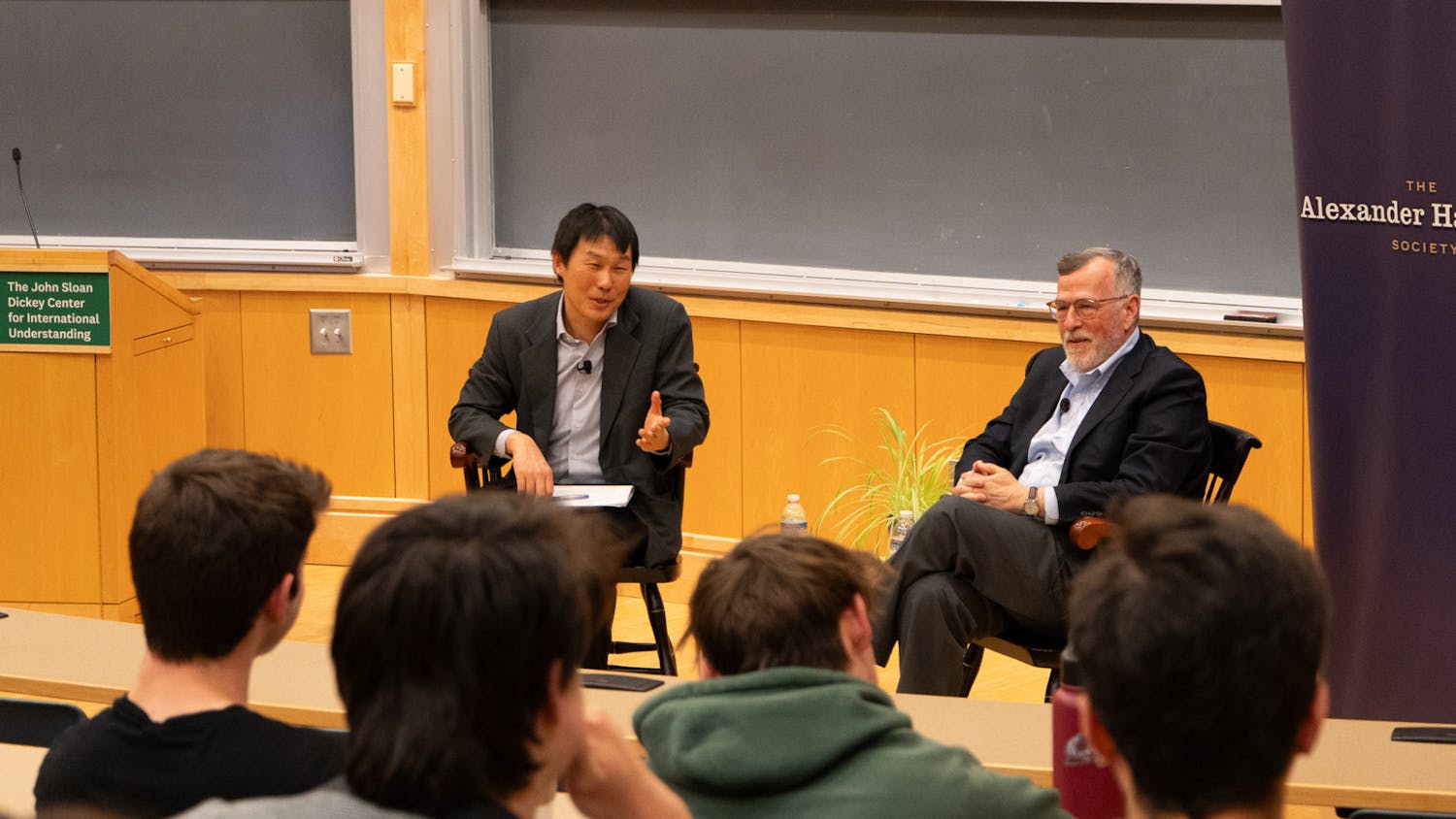Hedayat Amin-Arsala, former vice president of Afghanistan who is currently serving as a senior minister in the country, discussed the causes of violence and political instability in Afghanistan during the lecture, "My Country; My Concerns: My Vision," on Wednesday in Spaulding Auditorium. Amin-Arsala who announced his candidacy for president of Afghanistan in 2009 emphasized other states' interventions in Afghanistan as the primary reason for the country's problems.
Amin-Asala served as vice president of Afghanistan from 2002 until 2004.
Amin-Arsala highlighted British colonialism, Soviet intervention in Afghanistan during the Cold War, the Indo-Pakistan conflict and the ongoing War on Terror as the four interventions that seriously contribute the country's current problems.
The War on Terror "has attracted a number of [Afghanistan's] neighboring states to support the opposition forces," Amin-Arsala said.
The country's persistent poverty and the ethnic and sectarian violence in the region are contributing factors to Afghanistan's political and economic problems, according to Amin-Arsala.
"But they are not determining factors because in the past, when we had strong government, we were able to manage these differences," Amin-Arsala said. "The main cause, in my judgment and history proves that is the intervention of external powers into Afghanistan's affairs.
The high unemployment rates of young people also adds a support base to opposition forces such as the Taliban, Amin-Arsala said.
Afghanistan was a stable, functioning nation into the 1960s, which counters American media portrayals of Afghanistan as a "rough country," Amin-Arsala said.
"It was a time where people could travel from one corner of Afghanistan to another without any problems," he said.
Considerable advances have been made in Afghanistan since December 2001, when the Taliban's control over the country collapsed and a new democratic government was instituted, according to Amin-Arsala.
Amin-Arsala said that the development of a constitution, a comprehensive electoral system, advances in women's rights and the improvement of economic infrastructure have driven Afghanistan's resurgence.
"They reflect the nature of the change that has taken place," he said. "Despite this considerable progress, there is much that needs to be done."
A stronger system of governance is most important to make Afghanistan a more "peaceful, stable, sovereign and reasonably prosperous" country, Amin-Arsala said.
"Regrettably, corruption is still there and security has deteriorated to a large extent," he said.
Afghanistan's new government must increase accountability, encourage the proliferation of a civil society and institute an effective rule of law while stamping out the country's narcotics trade, according to Amin-Arsala.
"The trafficking of narcotic drugs is there and has increased substantially," he said.
The government should make poverty reduction programs a priority and create a strong, enabling environment for the private sector by investing in training and infrastructure, Amin-Arsala said.
Increased recruitment of soldiers and police, a readiness to defend by military means, and improved relations with neighboring states should also be important objectives for Afghanistan's leaders, Amin-Arsala said.
"Fighting has intensified and some people have wondered whether it is possible for us to put an end to this bloody war," he said.
The international community has a role to play as well outside countries should provide support for democracy and human rights in Afghanistan while helping Afghanistan resolve conflicts with neighboring countries, Amin-Arsala said.
The United States must "have a strong stand and say that failure is not an option in Afghanistan" to prevent losing credibility in the international political system, he said.
"We must ensure that no one is allowed to destabilize Afghanistan for their own narrow interest, because destabilization of Afghanistan has much greater implications," Amin-Arsala said. "A stable Afghanistan could be a hub of economic activity in that region of the world."
The lecture was the second installment of the summer lecture series "Perilous Triangle: Afghanistan, Pakistan and Iran," sponsored by the Institute for Lifelong Education at Dartmouth Summer.



